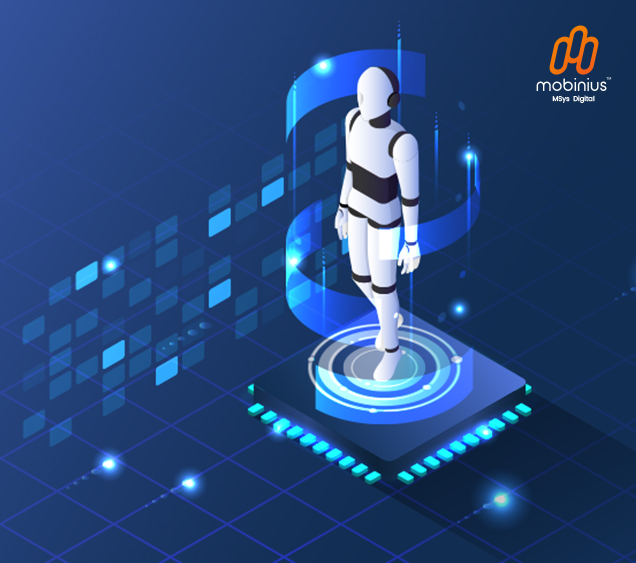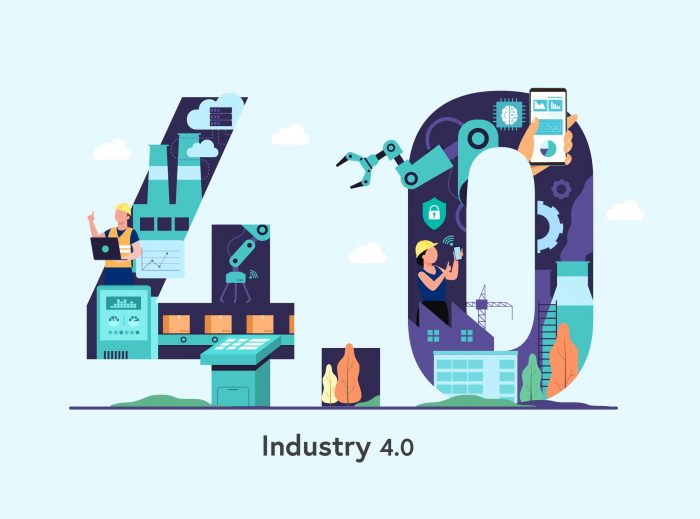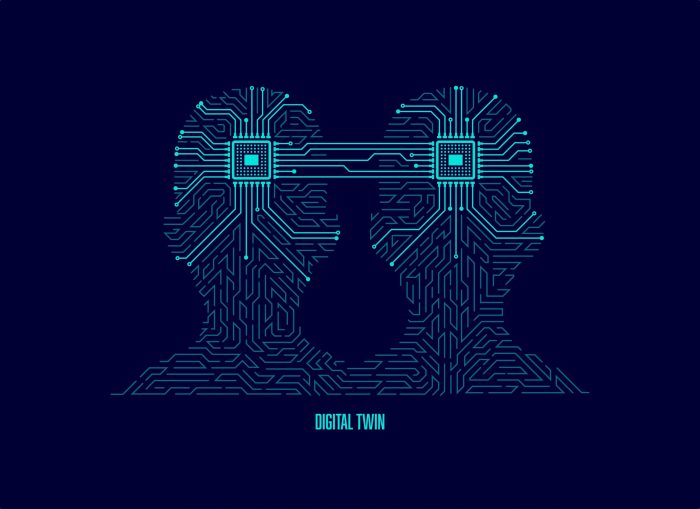Leveraging Customer Experience Using AI & ML Driven Technologies
Audio : Listen to This Blog.
Artificial Intelligence is also known as AI consists of technologies that match or surpass human-level intelligence for making intelligent machines. Machine learning technology is a category of artificial intelligence. Artificial Intelligence Industry is fast-growing, and we see machine learning applications around us everywhere – right from google search to self-driving cars. There are many artificial intelligence companies and top machine learning companies in the USA as well as across the globe. They are experts on artificial intelligence and machine learning with the know-how of machine learning development, machine learning trends, machine learning consulting, machine learning in business, and machine learning applications.
Table of Contents
What is Artificial Intelligence (AI)?
The term Artificial Intelligence (AI) was coined in 1956 by John McCarty. His definition is “Artificial Intelligence is the science and engineering of making intelligent machines”. This implies Artificial Intelligence is the intelligence demonstrated by machines. As the name includes the term artificial, AI is devoid of emotions that contribute to human intelligence.
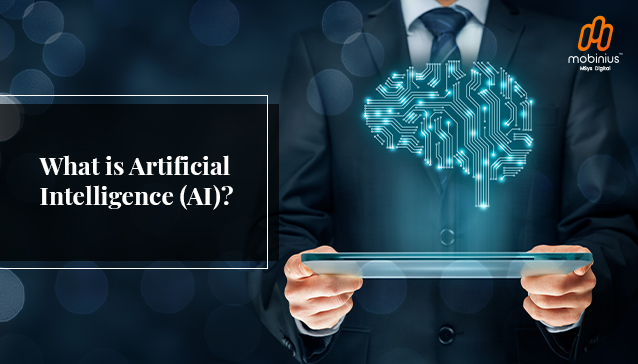
Artificial Intelligence (AI) uses complex algorithms and methods to build machines capable of making their own decisions without human interference. Machine Learning and Deep learning forms the core of Artificial Intelligence. There are many artificial intelligence companies across the globe that provide artificial intelligence consulting or artificial intelligence solutions. This includes Machine learning Development Companies that provide machine learning consulting. Such companies also have awareness of machine learning trends based on their implementation experience.
Types of Artificial Intelligence (AI)
Artificial Intelligence (AI) can be classified basis functionality and capability.
Types of Artificial Intelligence (AI) based on functionality:
- Reactive Machines
- Limited Memory
- Theory of Mind
- Self-Aware
Let us delve deeper into each of these types.
-
What is a Reactive Machine?
A reactive machine is the primary form of artificial intelligence that does not have the functionality to store in their memory. It makes impromptu decisions based only on present data and there is no reference to past data. The actions are reactive in nature and hence the name.
-
What is Limited Memory?
Limited Memory AI makes references to past data for decision making. Although past data can be referenced for a specific time, this cannot be added to the memory indefinitely, and hence the name limited memory.
Read More : “Recognized as Top AI Development Company by GoodFirms“
-
What is Theory of Mind?
Theory of Mind AI represents is an advanced concept. This proposes an interaction with the emotions and thoughts of humans. Even though many improvements are there in this field, this kind of AI is not fully complete yet.
-
What is Self-Aware?
Self-Aware AI is hypothetical and non-existent as of today. Scientists and technologists are working on this AI that has human-like intelligence along with self-awareness and hence the name.
Types of Artificial Intelligence (AI) based on capability:
1.Artificial Narrow Intelligence (ANI)
2.Artificial General Intelligence (AGI)
3.Artificial Super Intelligence (ASI)
-
What is Artificial Narrow Intelligence (ANI)?
Artificial Narrow Intelligence (ANI) as the name suggests focuses on one narrow task like a chatbot or voice assistance. This is also known as “weak AI”. Narrow AI systems are known for their competency at performing a single task, or a limited number of tasks. In many cases, they even perform better than humans in specific domains. But they do not have the expertise or are weak in situations that require human-level intelligence. Some of the well-known examples that use narrow AI algorithms are Google Search queries, video recommendations in YouTube and Netflix, and Weekly Discovery playlist in Spotify, Snapchat filters, etc. In fact, Alexa, Siri, and Echo are also powered by narrow AI.
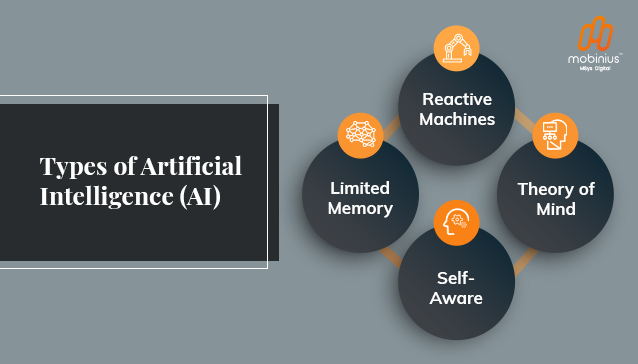
The narrow AI techniques can be categorized into two main categories: symbolic AI and machine learning. We will talk more about Machine learning in this blog.
-
What is Artificial General Intelligence (AGI)?
Artificial General Intelligence (AGI) has expertise in situations that require human-level intelligence. This is hypothetical and non-existent as of today. Scientists, Researchers, and Technologists are working on developing the same.
Read More : “How is AI advantageous as a Smart Assistant?“
-
What is Artificial Super Intelligence (ASI)?
Artificial Super Intelligence (AGI) has expertise in situations that surpass human-level intelligence. This is hypothetical and non-existent as of today. Scientists, Researchers, and Technologists are working on developing the same.
Benefits of Artificial Intelligence (AI)
Artificial intelligence can be a boon to any economy. Artificial Intelligence (AI) and Machine Learning (ML) will help humans in performing their tasks in a better manner.
Artificial Intelligence (AI) enhances information throughput and efficiency, helping people create new opportunities. There are numerous benefits of artificial intelligence.
Below are some of the key benefits:
-
Human Error Reduction
As artificial intelligence techniques are based on automated calculations and automated analysis, decision making is automated. Hence, there is a huge reduction in human error.
-
24*7 availability
It goes without saying that the advancement of technology has reached a stage where it is available all the time which is 24*7 (24 hours and 7 days in a Week). This is a boon.
-
Emotion free decision-making
As the name suggests, Artificial Intelligence (AI) is devoid of emotions that contribute to human intelligence. It uses complex algorithms and methods to build machines capable of making their own decisions without human interference. Hence, it is emotional free decision making which finds its benefit in many use cases.
Machine Learning Technology
Machine learning is a category of Artificial Narrow Intelligence (ANI) where the focus is on one narrow task like a chatbot or voice assistance. It is based on the idea that systems can learn from data, identify patterns, and make decisions without human intervention and hence are human error-free.
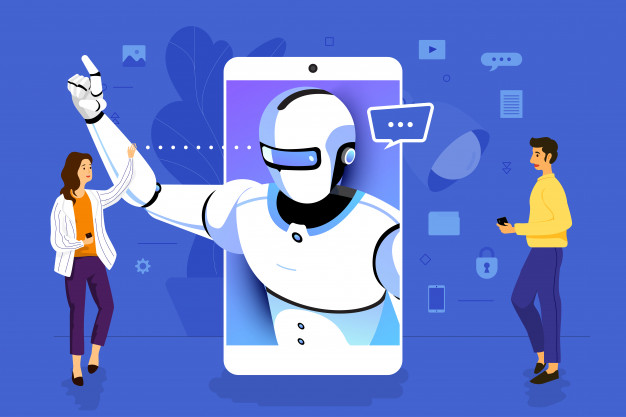
Machine learning applications are known for their competency at performing a single task, or a limited number of tasks. In many cases, they even perform better than humans in specific domains. But they do not have expertise in situations that require human-level intelligence.
Some of the common machine learning examples are Siri, Alexa, Echo, YouTube recommendations, etc.
Benefits of Machine Learning
Machine learning trends of recent times suggest application in automated data analysis and decision making as per business requirements. There are numerous benefits of machine learning. Below are some of the key benefits:
-
Continuous Improvement
Machine Learning algorithms have the functionality to store the data provided in their memory. It makes decisions based on present data in addition to the references made to the past data. As the new data is provided, efficiency and accuracy for decision making improve substantially.
Read More : “Top 10 Use-Cases of AI and Machine Learning in Fintech Industries“
-
Real-Time Assistance
All the algorithms operate on a real-time basis hence ensuring real-time assistance as and when required.
-
Faster Information Processing
As information processing is based on all the information that is available online, faster processing is possible than ever before.
-
Wide applications
One of the key utilities of Machine Learning is its ability to automate decision-making tasks. Thus, helping decision-makers in faster and accurate decision making. Machine Learning is used in every industry these days whether B2B (Business to Business) or B2C (Business to Customer).
For more information on how we can help you leverage your technologies, feel free to reach out to us here.
Contact us
To summarize, everything around us, be it a smartphone or self-driven cars uses some or the other Artificial Intelligence technology. The dependence on such technologies is more than ever before. Can you imagine a life without Social Networking Sites like Facebook, Instagram, Snapchat, or search portals like Google? All of these are use AI technologies. In fact, most businesses use tools that are AI-driven for business analysis and decision making. Artificial intelligence is impacting the future of virtually every industry and every human being. Artificial intelligence is the main driver of emerging technologies like big data, robotics and IoT, and it will continue to act as a technological innovator in the times to come.
FAQ's
No. Artificial Intelligence (AI) and Machine Learning (ML) will help humans in performing their tasks in a better manner. Artificial Intelligence (AI) enhances information throughput and efficiency, helping people create new opportunities. With the innovation of computers, as envisaged earlier, all jobs were not replaced by the machine. However, there was a demand of people who knew how to operate a computer. Similarly, job skill sets would always evolve with time and humans need to learn and adapt for survival.
As discussed in the blog, Artificial Super Intelligence (ASI) can surpass human level intelligence. However, that is hypothetical and non-existent as of today. Scientists, Researchers and Technologists are working on developing the same.
Python is the leader. Not only it is a widely used language, but has wide applications ranging across various requirement types.
